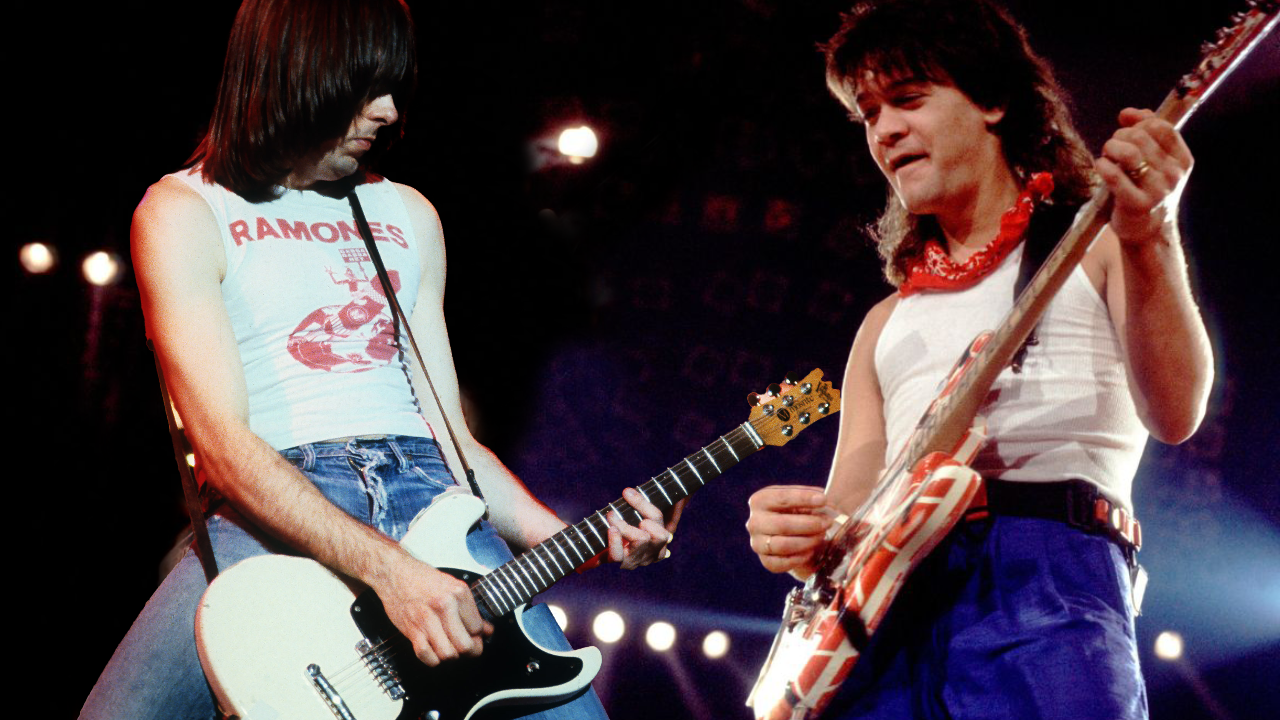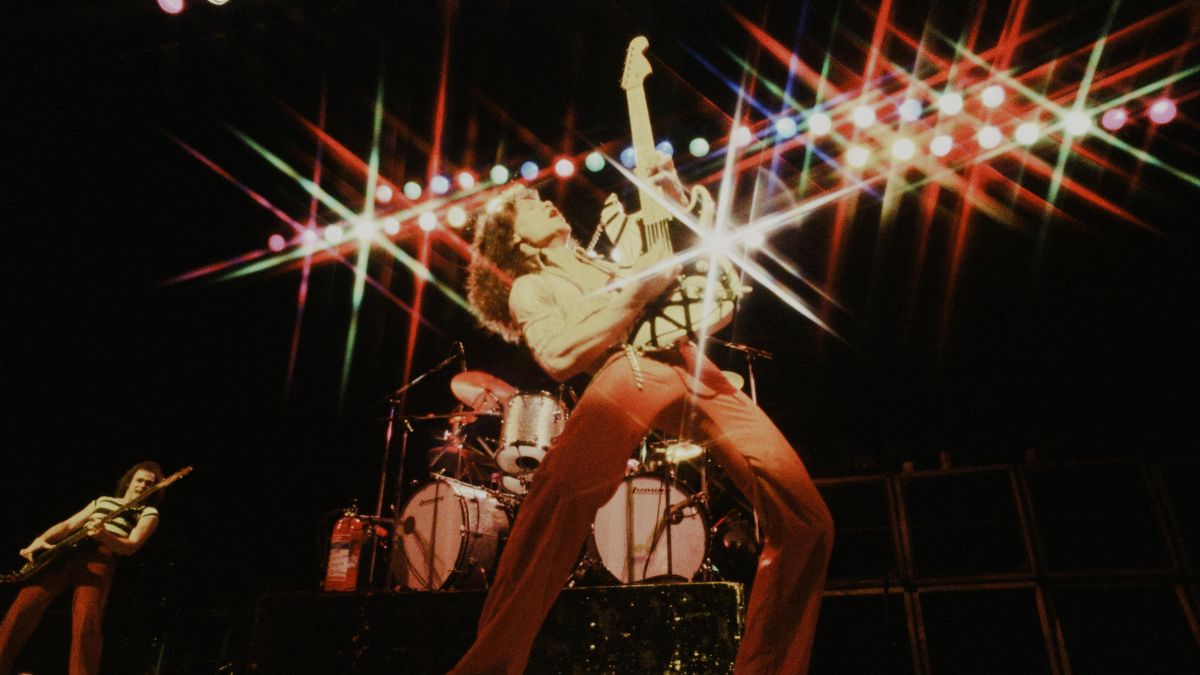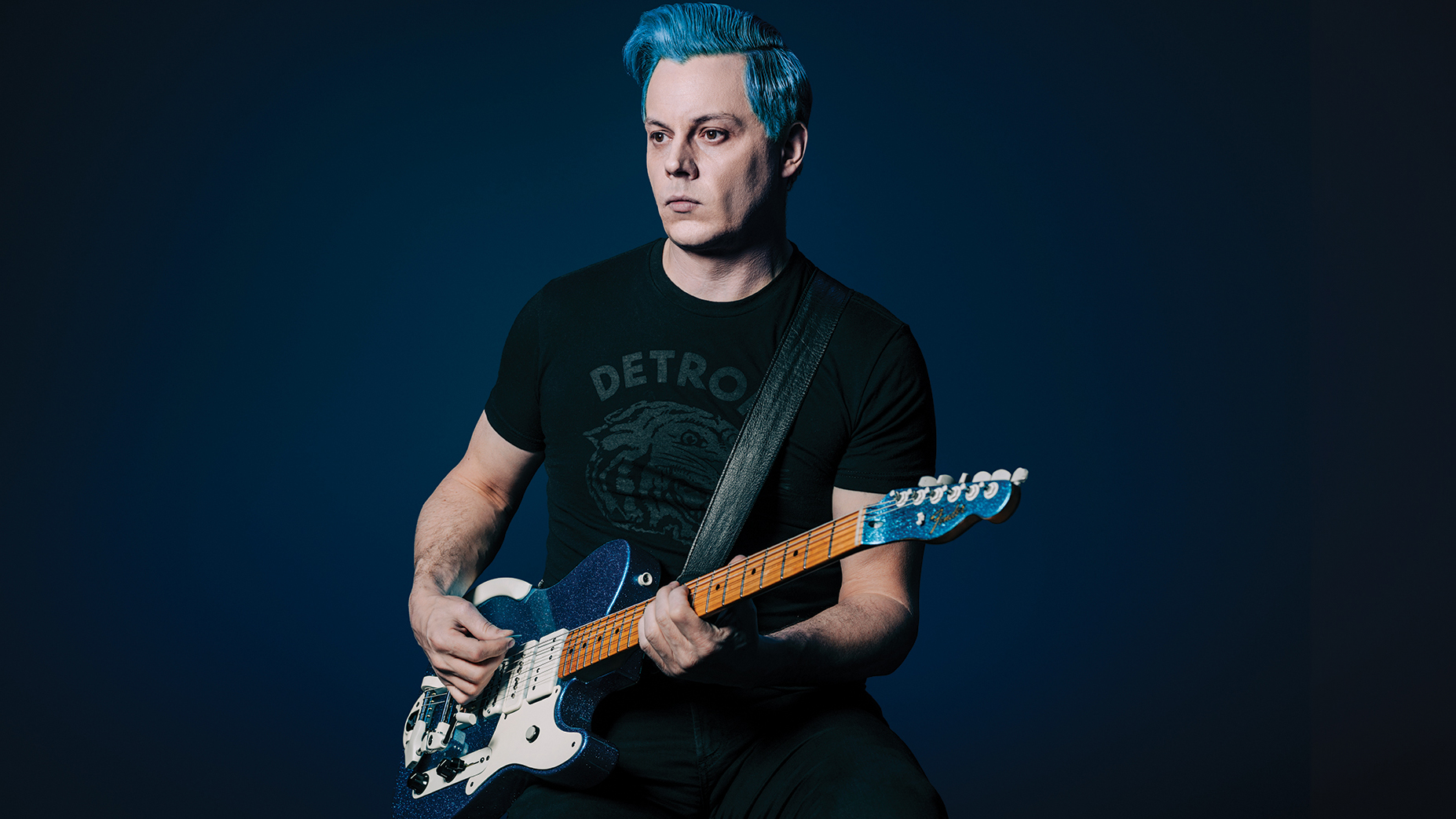“It shows you what you can do with two chords”: Did Van Halen's Ain't Talkin' 'Bout Love really start life as a parody of the Ramones?
“The whole song is just that one lick throughout,” says Michael Anthony. "It was kind of like a nod to punk."

All the latest guitar news, interviews, lessons, reviews, deals and more, direct to your inbox!
You are now subscribed
Your newsletter sign-up was successful
When it came to what he could do with an electric guitar, Eddie Van Halen was a trailblazer. But that doesn’t mean he pulled his inspirations out of thin air.
One of Van Halen’s biggest hits, “Ain’t Talkin’ ‘Bout Love”, the fourth single from the band’s eponymous 1978 debut album, came from a tongue-in-cheek place that belied their usual technical ecstasy.
“When Eddie came up with the lick, it was kind of like a nod to punk,” former bassist Michael Anthony tells Professor of Rock. “Like The Ramones, you’ve got one [or] two chords and that’s it.”
Naturally, the song does have oodles of Eddie’s trademark flair; there’s a dexterity to some of his fretboard dancing that would make Johnny Ramone’s brain melt. But Anthony’s right – the song pinballs between two chords: A minor and G.
“The whole song is just that one lick throughout,” Anthony expands. “It has no other kind of B-section that takes you somewhere else or whatever. That’s exactly why that song came out like it did. It shows you what you can do with two chords.”
What certainly isn’t punk is the subtle helping of sitar that the band’s super producer, Ted Templeman, snuck into the mix.

“There was an electric sitar in the studio, and Eddie picked it up, and the thing was really hard to play,” Anthony adds. “But it sounded really cool, so he used it in that solo. It was different sounding, and [even though] Eddie struggled to play that thing with the string height and everything, he did it.”
All the latest guitar news, interviews, lessons, reviews, deals and more, direct to your inbox!
“There was no guitar player who had ever played like that,” Templeman once told Guitar Player of Eddie's talents. He even cites “Ain’t Talking ‘Bout Love” as the favorite Van Halen song he worked on.

“First of all, Ed’s guitar – that riff is incredible, and Donn [Landee, engineer] got a great sound on it,” he enthuses. “Instantly, he tuned right in. And it’s got a really interesting solo on it. For some reason, out of anything I ever cut, I still love listening to that. A lot of it is the intro. Ed’s guitar is amazing.”
Eddie was the unmistakable driving force behind the band; he was their selling point – even with David Lee Roth fronting them – and his limelight hogging was the reason the singer ultimately quit. But there was great pressure with that, too.
British filmmaker Simon Adkin has captured that superbly. He has been tirelessly piecing together old Van Halen interviews across a series of free-to-watch documentaries on the band. In one of his latest, which centers on how “Eruption” revolutionized lead guitar for a generation of players, Eddie talks about being the “spark plug” of the band, and how the rest of the group relied on his genius.
Conversely, Sammy Hagar says the guitarist was “dried up” by the 2000s, hence why the band only released one album in the 21st century. The singer also said that he was more interested in the cello than the guitar in his final months – but refused to showcase his chops.
Hagar also claims that Eddie came to him in a dream after they died and that his latest song, “Encore, Thank You, Goodnight” is what they wrote in that moment. It’s a fairly outlandish claim, but Santana’s recent dream-based tale – featuring the fingerless spirit of Stevie Ray Vaughan – might just top it.
A freelance writer with a penchant for music that gets weird, Phil is a regular contributor to Prog, Guitar World, and Total Guitar magazines and is especially keen on shining a light on unknown artists. Outside of the journalism realm, you can find him writing angular riffs in progressive metal band, Prognosis, in which he slings an 8-string Strandberg Boden Original, churning that low string through a variety of tunings. He's also a published author and is currently penning his debut novel which chucks fantasy, mythology and humanity into a great big melting pot.


